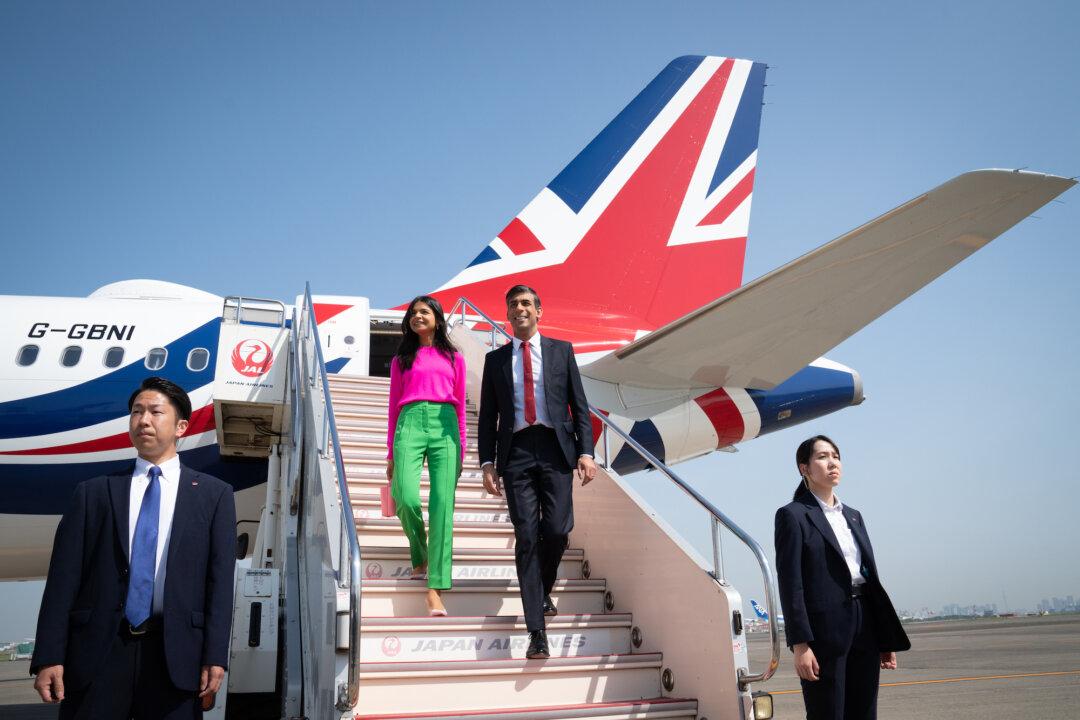British Prime Minister Rishi Sunak has arrived in Hiroshima, where he will sign a new agreement with Japan designed to boost defence ties and tackle the growing military and cyber threat from the Chinese Communist Party (CCP) in Beijing.
Sunak—who arrived in Tokyo on Thursday before flying on to the city made infamous as the site of the first atomic bombing—has committed to deploying a Royal Navy battle fleet in the Indo-Pacific in 2025 and to double the number of British troops taking part in joint exercises with Japan later this year.





